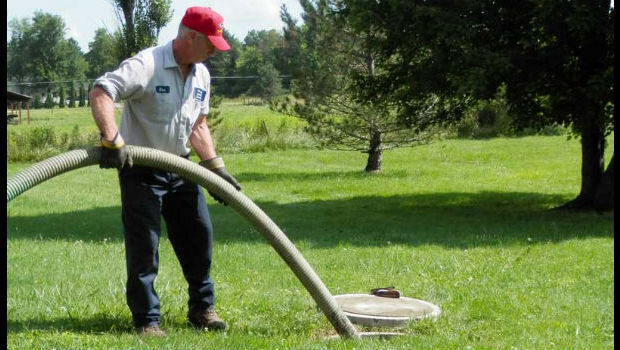Tips For Maintaining Your Septic System

A septic system is a very significant part of what is probably the most important purchase people will make in their lifetime. The ideal situation would be to start with a new septic system and a new house, and do the proper septic system maintenance to keep them in top notch condition.
The second best would be to know what septic system maintenance was done from the time the system was installed. For many reasons, this is usually not possible. However, if you follow a good maintenance program, it can only be to your benefit.
Like us, septic systems have a lifetime, and following these tips provided can greatly extend it.
SEPTIC SYSTEM MAINTENANCE
LAUNDRY
Space out laundry loads over the course of the week and wash only full loads. The average load of laundry uses 47 gallons of water. One load per day rather than seven loads on Saturday makes a big difference to your septic system. Also, front loading washers use less water than top loading machines. Use liquid laundry detergent, preferably biodegradable and low phosphate. Powdered laundry detergents use clay as a “carrier.” This clay can hasten the buildup of solids in the septic tank and potentially plug the disposal area. Also use dryer sheets rather than liquid fabric softener.
CONSERVE WATER
Install low usage water fixtures. By installing low water usage showerheads, toilets, dishwashers, and washing machines, an average family can reduce the amount of water entering the septic system by 20,000 gallons per year! Low flow showerheads and toilets can be purchased at local lumberyards. Water saving dishwashers and washing machines can be purchased at better appliance stores.
CLEANERS AND CHEMICALS
Minimize the amount of household cleaners (bleach, harsh cleaners) and similar potentially toxic substances entering the septic system. Do not use disinfecting automatic toilet bowl cleaners, such as those containing bleach or acid compounds. The continuous slow release of these chemicals into the septic system kills the bacteria which are necessary for a properly working septic tank.
MEDICATIONS
Never flush expired or unwanted prescriptions and over-the-counter drugs down the toilet or drain. Return unwanted or expired medications to a Drug Take Back Day commonly held by the sheriff’s department.
OUTLET SCREENS
Install a septic tank outlet screen in your tank. These generally sell for $100 to $200 depending upon brand and model. They catch small floating particles and lightweight solids, such as hair, before they can make it out to the disposal area and cause trouble. Some models are also designed to capture suspended grease. The outlet screen will need to be periodically cleaned. This can be done by the homeowner or by your septic professional.
GARBAGE DISPOSAL
If you chose to use a garbage disposal make the choice to pump your tank more frequently. Or, better yet, remove the garbage disposal and compost your kitchen scraps. Keep kitchen grease, such as bacon fat and deep fryer oil, out of your septic system. It is not broken down easily by your system and can clog your drain field. Studies have shown the quality of the septic tank effluent is poorer when a garbage disposal is used. It is the quality of the septic tank effluent that determines the life of the septic system.
SERVICE
Have your septic tank on a schedule to be pumped every two to three years. This schedule applies to all systems unless the home has a garbage disposal and it gets used more than sparingly. These systems should be serviced every one to two years, depending on the use of the garbage disposal. Our advice would be not to use the garbage disposal. It is your choice to make; however, make the service choice that goes with your decision. Some tanks may require pumping more often depending upon age and usage.
